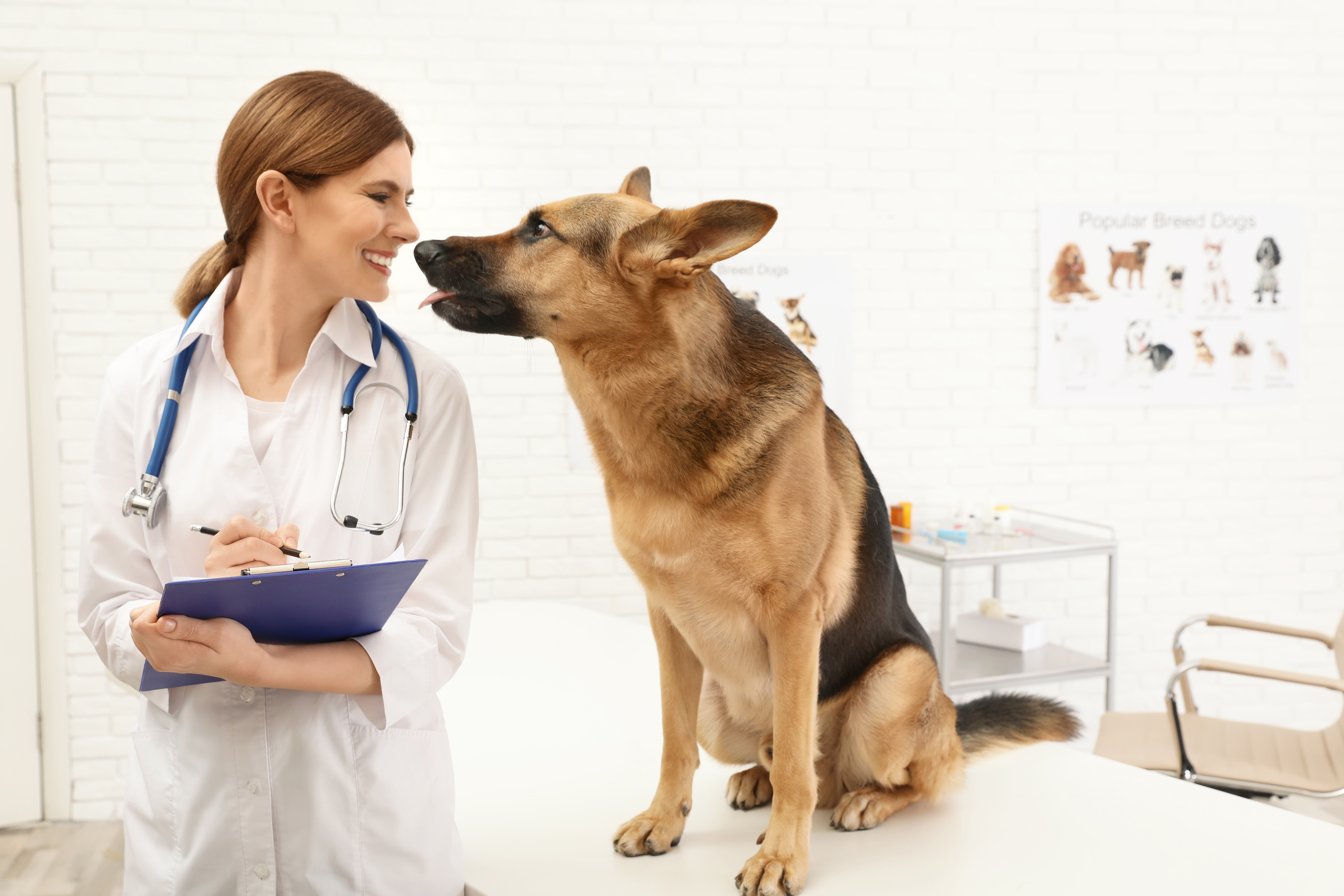Why Your Dog is Having Allergic Reactions

While humans know what it is like to suffer from allergies regularly, dogs also often experience them. Many elements can trigger your dog’s allergies. Here is what causes your dog to itch, sneeze, or have other allergic reactions.
Types of Allergens for Dogs
There are several different allergens for dogs, including:[1]
- Environmental allergens
- Food allergens
- Flea dermatitis
Environmental Allergens
Just like humans, dogs can be allergic to environmental substances such as pollen, mold, and dust. They can have different symptoms, but the most common are sneezing and runny noses. However, itching and licking are also common.
These Environmental allergens create irritation in the ears and paws.[1] This will cause your dog to lick its feet and scratch its ears. Moreover, frequent itching and scratching can open a pathway to bacterial and yeast infections. You may notice that your dog’s allergies are seasonal because these allergens are only abundant in the environment at certain times of the year.[2]
Food Allergens
Dogs can have allergies to different ingredients in their diet, and we often see diet-related issues with the pets we interact with at EquiVet Care. Sometimes, excessive immune responses to food can cause typical itching, but on occasion, it can be more severe. Allergic reactions can also cause diarrhea, and in the most severe cases, anaphylaxis can occur. You should monitor your dog’s diet to figure out which ingredient causes allergic reactions.[3]
When it comes to increasing pet wellness, hypoallergenic dog diets may not always be the answer. Though some foods may cause allergic reactions for some dogs, other dogs may have an intolerance that does not involve their immune system.
These intolerances can cause the same mild symptoms as allergies, such as itchiness and diarrhea. Dogs can have intolerances to certain kinds of meat, vegetables, or dairy products. Chicken and wheat intolerances are especially common. Be sure to monitor symptoms while changing your dog’s diet to see if they worsen or improve.[4]
Flea Allergens
Fleas can cause chronic allergic reactions for your dog. While some dogs are affected by fleas to varying degrees, many dogs have unpleasant allergic reactions to flea bites. Flea bites can cause severe itching and irritation at the site and all over the skin.
Flea bites can be treated with certain ointments. Prophylactic skin cream treatments are available to mitigate your dog’s allergic reactions to flea bites, and they should be applied monthly.[5]
Acute Allergic Reactions
Besides mild skin and gastrointestinal allergies and intolerances, dogs can sometimes experience worse allergic reactions that can be life-threatening. Food and environmental factors are uncommon causes of acute allergic reactions. These severe instances are more commonly your dog’s immune response to certain vaccines, drugs, or bee stings.
When your dog gets a vaccine, you are generally in the presence of a licensed veterinarian who can treat your dog on the spot. However, if your dog has an acute allergic reaction in another setting, you should take them to an emergency veterinary hospital right away.[1]
The veterinary experts at EquiVet Care can help your dog stay healthy and happy throughout their whole lives. Contact us to schedule an appointment for your furry friend today!
References:
[1] https://www.akc.org/expert-advice/health/dog-allergies-symptoms-treatment/
[2] https://www.petmd.com/dog/general-health/food-allergies-vs-seasonal-allergies-dogs
[3] https://vetnutrition.tufts.edu/2017/01/food-allergies/
[4] https://www.petmd.com/dog/centers/nutrition/evr_dg_best-dog-food-for-dogs-with-food-allergies
[5] https://vcahospitals.com/know-your-pet/allergy-flea-allergy-dermatitis-in-dogs


